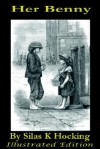Currently reading
The Lonely Sea: Collected Short Stories
Her Benny
Vedere din Parfumerie
Mysticism and Logic (Western Philosophy)
The Analects of Confucious
Pragmatism: A New Name for Some Old Ways of Thinking
Does Anything Eat Wasps?: And 101 Other Unsettling, Witty Answers to Questions You Never Thought You Wanted to Ask
Mutual Aid
City of Djinns: A Year in Delhi
The Brothers Karamazov
Between the Woods and the Water
 I have to believe that Fermor's reputation as one of England's greatest writers must rest on many of his earlier books. Or maybe it's the the recommendation of lesser writers like Morris. This book gets three instead of fewer stars merely because 1) I'd recently passed through some of the same terrain 2) He told me something about my family history I never would have guessed, although I'd spent days in the same city bequeathed to Teutonic Knights, entirely unaware of its history.
I have to believe that Fermor's reputation as one of England's greatest writers must rest on many of his earlier books. Or maybe it's the the recommendation of lesser writers like Morris. This book gets three instead of fewer stars merely because 1) I'd recently passed through some of the same terrain 2) He told me something about my family history I never would have guessed, although I'd spent days in the same city bequeathed to Teutonic Knights, entirely unaware of its history.I CAN see how his technique would become soothing or mysterious to readers who'd never seen precisely the same foreign lands. His writing is a singular collection of strange nouns, which become clunky and tedious unless one is instantly mesmerized by exotic locations and words. But when he describes the next city on the trip, Sibiu, which neither he nor I have really seen? Both of us become mesmerized.
The nice thing about his obsession with nouns is that you begin to notice an astonishing variety of cultures packed into quite a dense area of Europe. This he can accomplish because he whips back and forth among the castles of Austro-Hungarian archdukes, Jewish mountain homes, and island mosques. He also claims that the astonishing variety of costumes represent well-established, intricate hierarchies in each tribe's work life. Perhaps it is invaluable as a memoir of what was lost between the wars, aside from his dubious virginity and most of the notes and notebooks he'd sent or kept at the time. All of the costumes seem to have vanished by now, along with the water buffalo.
I was going to say that this book works best as a history lesson, but in hindsight it seems that rivalries between mountain tribes and Austro-Hungarian or Rumanian royalty seem quite insignficant compared to two world wars and their aftermath. By no means have Romanians forgotten Vlad the Impaler, but I wonder if there's a point in dredging up bickering over Transylvania? Vlad conquered Ottoman forces, for example, but Turks still live quite openly in the population centers of Bucharest and Transylvaina.
Fermor never seems to touch much on conflict, including the world wars, although his writing is sometimes so elliptical it's hard to tell. I did make a special note to mention that his one page synopsis about the history of anti-semitism in Europe is one of the greatest, most balanced explanations I've ever seen.
But as memoir? He only expresses strong emotion about three things: the loss of his notebooks years after his travels, the loss of updates he sent to his mother, also years later, and the loss of Trajan's bridge, along with the strange rapids it once bridged and the last island refuge of ancient Turks, all of which happened when bordering countries created a lake between the Carpathian and Balkan mountains. None of that strong emotion shows up as regret for the host families lost in the war and other tragedies, or the melancholy joy of drinking strange liquor to gypsy music, or taking another man's wife deeper and deeper into the woods.













